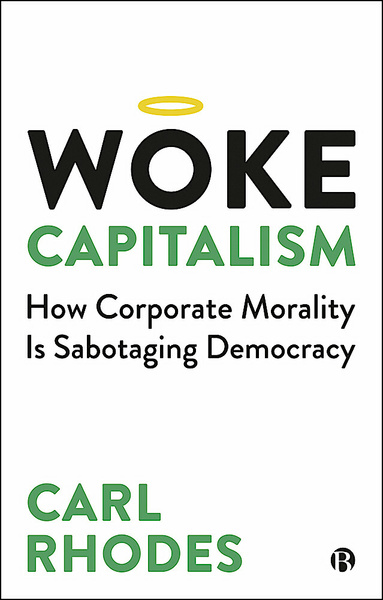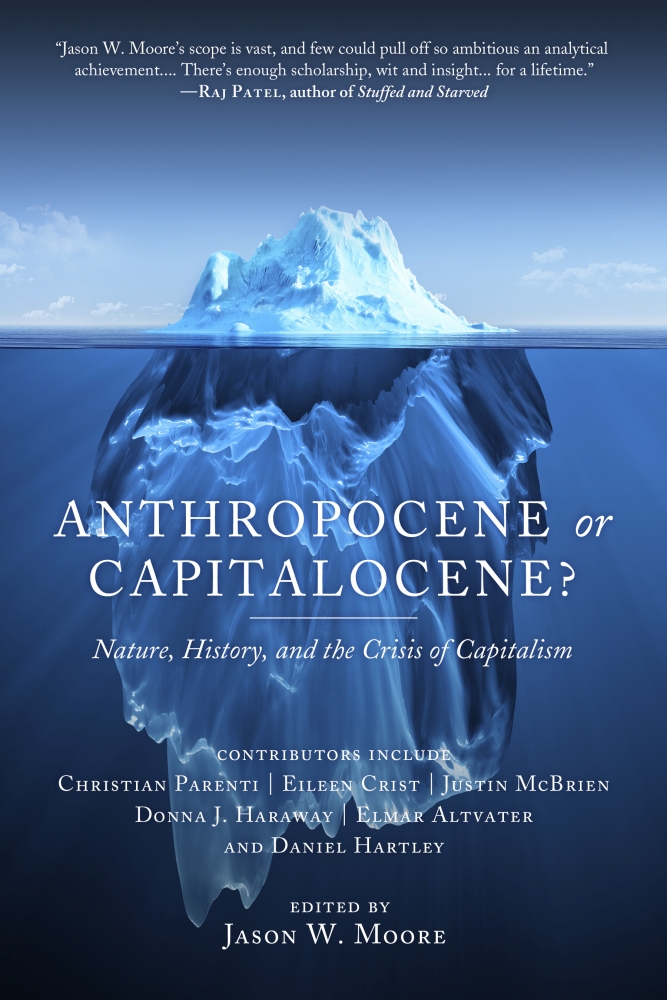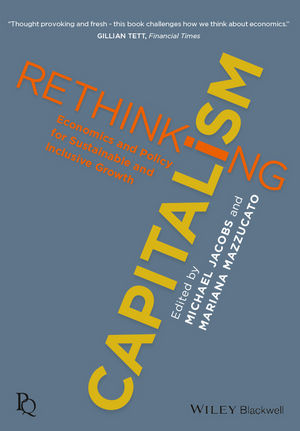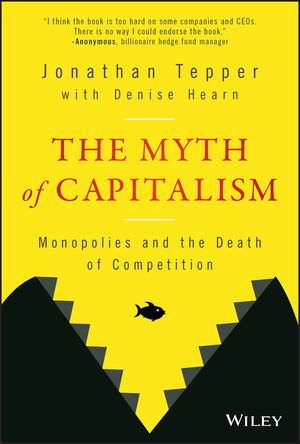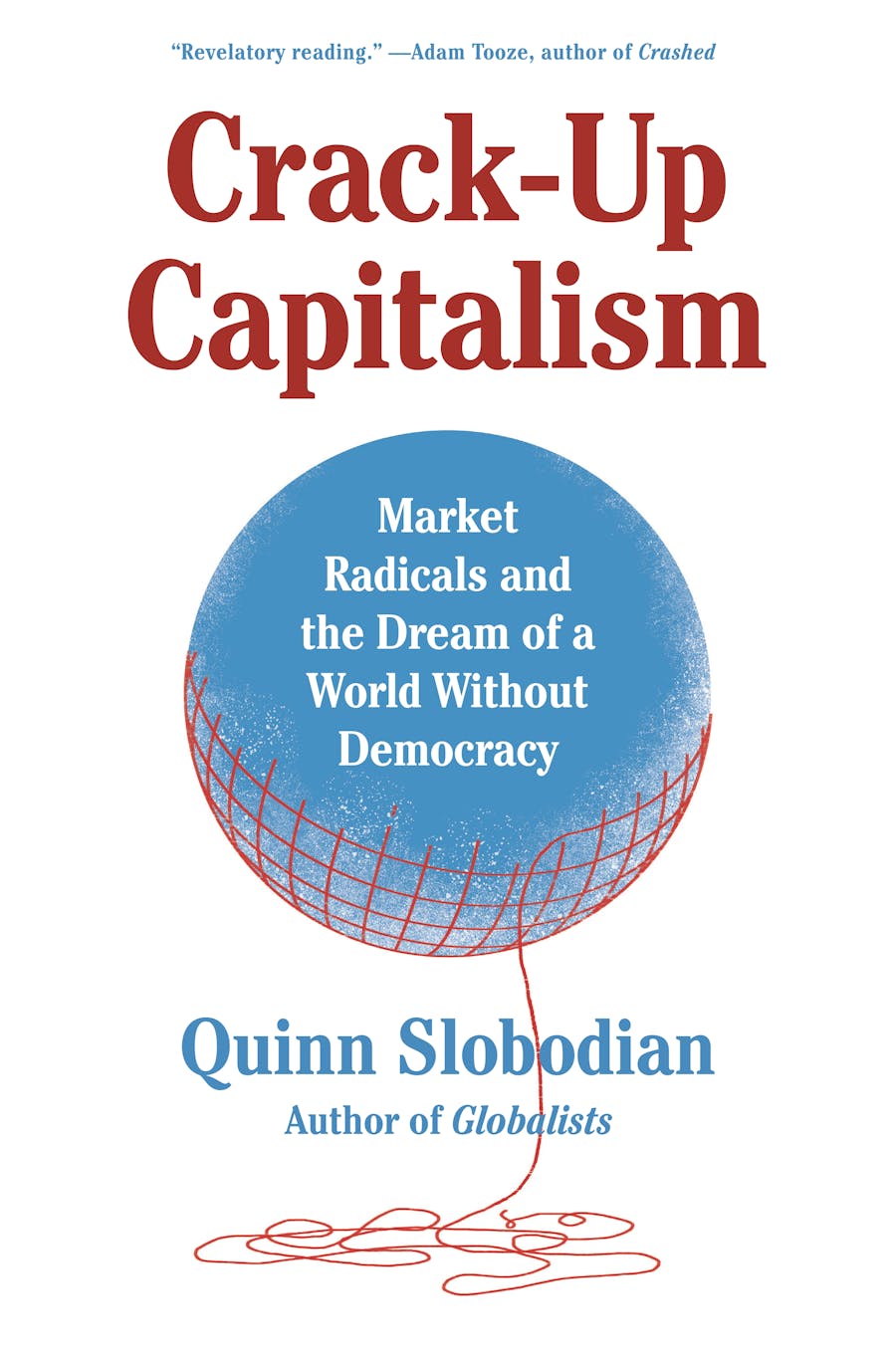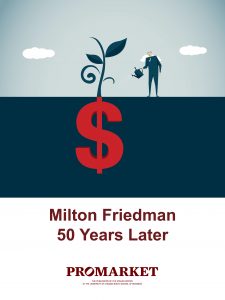The Price Is Wrong. Why Capitalism Won’t Save the Planet
El mecanisme de preus no ha nascut per a capgirar les prioritats energètiques i conservacionistes. El capitalisme no salvarà el planeta, i ningú li ha dit que ho faci. Més aviat fa el contrari. I el socialisme tampoc el salvarà, això ja ho sabem de fa dies.
Today's consensus is that the key to curbing climate change is to produce green electricity and electrify everything possible. The main economic barrier in that project has seemingly been removed. But while prices of solar and wind power have tumbled, the golden era of renewables has yet to materialize.
The problem is that investment is driven by profit, not price, and operating solar and wind farms remains a marginal business, dependent everywhere on the state's financial support.
We cannot expect markets and the private sector to solve the climate crisis while the profits that are their lifeblood remain unappetizing. But there is an alternative to providing surrogate green profits through subsidies: to take energy out of the private sector's hands.
I el llibre proposa una energètica pública? No sé pas on anirem a parar.
Llibre resumit amb IA.
Aquí teniu un resum detallat del llibre "The Price Is Wrong: Why Capitalism Won’t Save the Planet" de Brett Christophers,
El llibre, publicat el 2024, aborda la qüestió del canvi climàtic centrant-se específicament en l'electricitat i els intents de descarbonitzar la seva generació. L'autor es proposa resoldre una paradoxa aparent en l'economia de la transició energètica i el desenvolupament de les energies renovables.
L'argument principal del llibre és que mirar l'economia de la transició energètica i el desenvolupament de les energies renovables a través del prisma del preu és enganyós. La qüestió no és principalment sobre el preu. El títol del llibre, "The Price Is Wrong", pretén transmetre aquest missatge. Segons Christophers, prioritzar el preu com a lent analítica sobre el clima i el capitalisme és un "cant de sirena". Per tant, la discussió amb els que obsessionen sobre quin ha de ser el preu de les renovables (i del carboni) no és que la seva resposta sigui incorrecta, sinó que la seva pregunta ho és. El preu és la categoria analítica equivocada per prioritzar.
El llibre no examina la reducció d'emissions d'altres fonts (com el ciment o el transport) ni altres gasos d'efecte hivernacle. Tampoc tracta la generació distribuïda a petita escala (grups comunitaris o llars) ni el negoci del disseny o fabricació de les tecnologies renovables (panells solars, turbines), tot i que aquest darrer és una "presència propera significativa". L'autor tampoc se centra explícitament en qüestions polítiques com els interessos creats o la esclerosi de la planificació, tot i que són implícites a la seva tesi. Tampoc ofereix un pla d'acció o propostes sobre com organitzar els sistemes elèctrics o la descarbonització; el llibre tracta sobre què no salvarà el planeta i per què.
En lloc del preu, la lent específica correcta per analitzar la transició cap a l'electricitat renovable és el benefici esperat. La decisió d'invertir en nova capacitat solar o eòlica comercial depèn de si s'espera obtenir un rendiment econòmic acceptable per al desenvolupador. En una economia capitalista, les decisions d'inversió es prenen basant-se en la rendibilitat esperada. Si els capitalistes no preveuen rendibilitat, no inverteixen.
El llibre critica fortament l'ús generalitzat del Cost LCOE (Levelized Cost of Electricity) com a mesura per avaluar la competitivitat de les energies renovables. Tot i que organismes com l'AIE i empreses financeres com Lazard l'utilitzen àmpliament, l'autor (citant altres) l'etiqueta de "irrelevància pràctica". LCOE no té en compte molts factors crucials per a la rendibilitat, com els costos de connexió a la xarxa, la transmissió, la congestió, la integració o la necessitat de potència de reserva o emmagatzematge a causa de la intermitència de les renovables.
L'autor contrasta la visió centrada en el preu amb la economia política clàssica (Smith, Ricardo, Marx), que se centra en el benefici. Des d'aquesta perspectiva "profit-side", l'oferta i la demanda efectives estan regulades per la rendibilitat esperada.
El llibre argumenta que perquè el menor cost de generació (que sovint s'atribueix a les renovables) es tradueixi necessàriament en un major benefici (i, per tant, en inversió), calen certes condicions econòmiques importants que sovint no es donen en el sector elèctric actual:
- Estructura de la indústria: En un model d'empresa única i verticalment integrada (generació, distribució, venda), el menor cost de generació (LCOE) sí que importaria. Però el sector elèctric actual està sovint desagregat verticalment, especialment la generació, que s'ha desmonopolitzat, privatitzat i mercantilitzat. En aquest model, els generadors sovint venen a l'engròs en mercats, on el vincle entre cost i preu (i, per tant, benefici) és més complex.
- Naturalesa del producte: L'electricitat generada per renovables és exactament el mateix producte que la generada per mitjans convencionals amb el mateix potencial d'ingressos?. La intermitència de l'energia solar i eòlica significa que la seva disponibilitat no sempre coincideix amb la demanda, afectant el seu valor i el potencial d'ingressos.
- Estructura del mercat: Com es determina el preu?. Els mercats majoristes, especialment els mercats spot, són crucials. El mecanisme de preu únic de compensació (single-clearing price) en els mercats spot implica que totes les centrals despatxades reben el preu ofert per la més cara (marginal). Això pot fer que les centrals renovables de baix cost rebin preus elevats en certs moments, però també preus molt baixos o negatius quan la producció és alta i la demanda baixa, portant al que s'anomena "efecte canibalització del preu".
Una limitació fonamental a la inversió en renovables en països amb mercats elèctrics liberalitzats i mercats spot és la manca de visibilitat i predictibilitat sobre la rendibilitat esperada. Els preus de l'electricitat en aquests mercats són notablement volàtils, creant un risc de mercat significatiu per als generadors. Aquesta extrema volatilitat fa que sigui difícil saber si una central serà molt rendible o tindrà pèrdues desastroses. Aquesta aversió al risc de preu (i, per tant, d'ingressos) és un factor crucial que afecta les decisions d'inversió .
Per mitigar aquesta manca de predictibilitat i rendibilitat i fer que els projectes siguin "finançables" (bankable), s'han introduït mecanismes de suport governamental i de mercat orientats a l'estabilitat. El suport financer dels governs continua sent fonamental arreu del món per sostenir l'interès en invertir en nova capacitat solar i eòlica. Aquest suport sovint busca fer el benefici visible i predictible tant com fer-lo viable. Exemples de mecanismes de suport esmentats inclouen els feed-in tariffs (FiTs) i els Contracts for Difference (CfDs). Als EUA, els crèdits fiscals com el PTC i l'ITC, sovint transferits a través de finançament d'equitat fiscal , també són crucials.
Els acords de compra d'energia (PPAs) bilaterals representen una altra ruta per al mercat que permet eludir, en gran mesura, la volatilitat dels mercats spot. N'hi ha de dos tipus principals: amb minoristes d'electricitat (utility PPAs) o amb grans usuaris (corporate PPAs). Els PPAs corporatius es consideren especialment significatius pel paper que s'espera que tinguin en el futur per justificar la creença en el poder transformador dels mercats i el capital privat en la transició energètica. Els PPAs busquen proporcionar estabilitat de preu i ingressos a llarg termini, fent els projectes més atractius per al finançament. No obstant això, fins i tot els PPAs poden veure's afectats per factors com l'augment dels costos dels equips.
El sector financer, incloses empreses com BlackRock i JPMorgan Chase, és desproporcionadament important en aquesta història. Com a "porters d'accés al capital", les institucions financeres són les que, en última instància, decideixen si els grans programes d'inversió del sector privat (i públic) en societats capitalistes tiraran endavant o no. Els desenvolupadors de renovables tenen una forta preferència pel finançament amb deute, i són les preocupacions i requisits de rendibilitat de les institucions financeres els que són clau. Les empreses financeres solen ser averses al risc de mercat. De fet, la inversió financera en infraestructura verda sovint s'associa amb un "cost premium verd" i ofereix retorns menors que altres oportunitats d'inversió per a les empreses financeres.
El llibre suggereix que els "mercats" d'electricitat en sistemes desagregats requereixen una sèrie de "suports, regles, regulacions i normes" per fer l'electricitat comprable i vendible amb benefici. Això posa en dubte la idea que aquests sistemes representin un "benefici real" en un "mercat real". El mercat liberalitzat ha generat un sistema complex i opac. Es mencionen casos de possible manipulació del mercat.
La conclusió central del llibre és que, si el capital privat que circula en mercats, fins i tot amb tot el suport governamental rebut i amb la caiguda dels costos tecnològics, encara no aconsegueix descarbonitzar la generació d'electricitat global amb la rapidesa necessària, és un senyal clar que el capital no està dissenyat per fer aquesta feina. Malgrat les proves en contra, la "fe neoliberal en el capital i els mercats" es manté forta "on importa".
